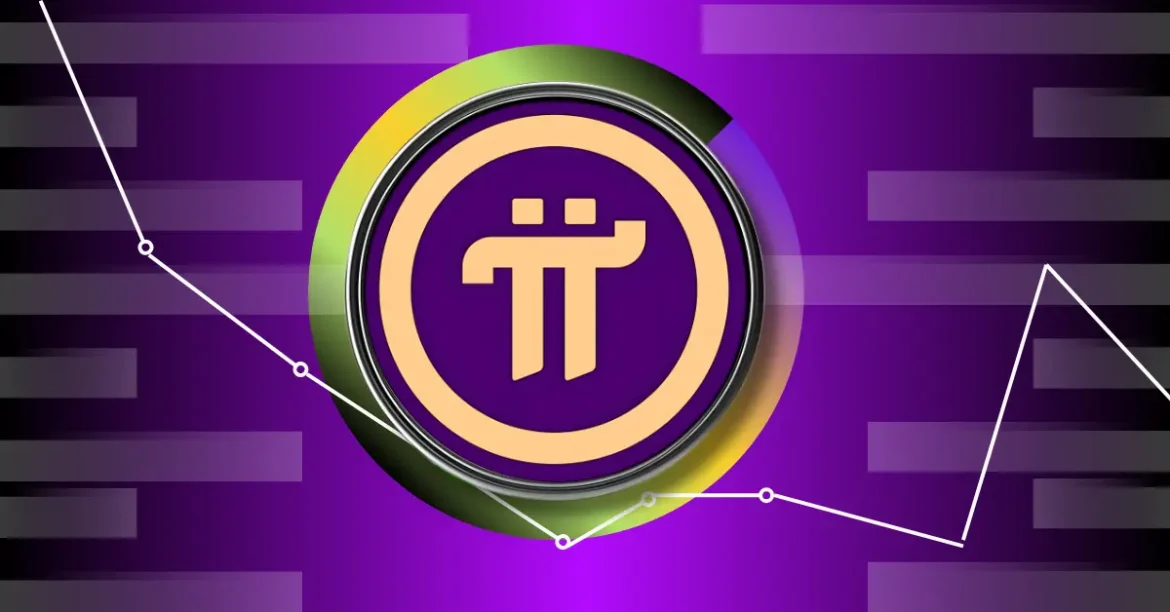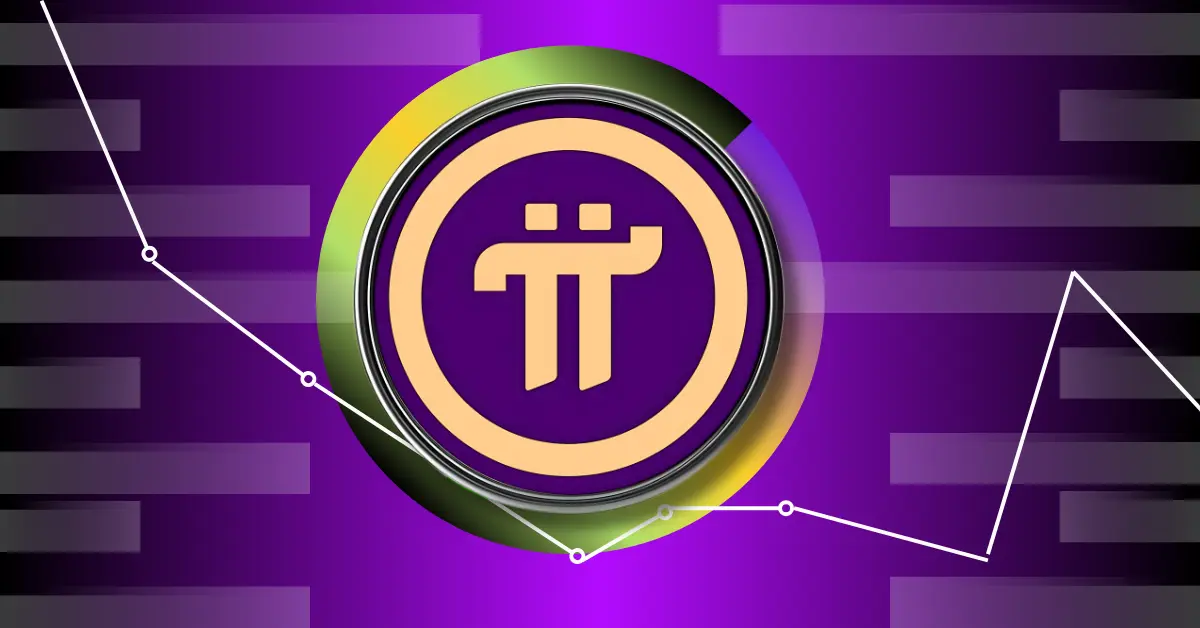The Rise of Citizen Developers: An Analysis of Pi Network’s AI-Powered App Studio
The digital landscape is undergoing a profound transformation, driven by the convergence of decentralized technologies and artificial intelligence. At the forefront of this evolution is the Pi Network, a blockchain project that has gained significant traction for its innovative approach to cryptocurrency mining and ecosystem development. The recent launch of Pi Network’s AI-powered App Studio marks a pivotal moment in the project’s journey, democratizing app development and empowering a new generation of creators. This analysis explores the implications of this groundbreaking platform, its features, and its potential to reshape the Web3 landscape.
A Paradigm Shift in App Development
Traditionally, app development has been the domain of skilled programmers with expertise in coding languages and software architecture. This technical barrier has limited the number of people who can contribute to the digital economy, stifling innovation and creativity. Pi Network’s AI-powered App Studio disrupts this status quo by enabling individuals with little to no coding experience to create and deploy decentralized applications (dApps). This democratization of app development is not just a technological advancement; it is a social and economic shift that has the potential to unlock the creative potential of millions of people worldwide.
The initial response to the launch of Pi App Studio has been overwhelmingly positive, with over 7,900 AI-powered apps created within days of its release. This surge in adoption underscores the pent-up demand for accessible app development tools and highlights the Pi Network community’s eagerness to contribute to the ecosystem. The platform’s success is a testament to the power of democratizing technology and the potential of AI to bridge the gap between ideas and execution.
The Mechanics of Pi App Studio
At the heart of Pi App Studio is its AI-powered interface, which translates user instructions into fully functional dApps. This no-code platform leverages natural language processing to interpret user inputs and generate the necessary code and infrastructure for the application. The result is a seamless and intuitive development process that empowers users to bring their ideas to life without the need for technical expertise.
In addition to its AI capabilities, Pi App Studio incorporates a range of features designed to enhance the user experience and facilitate the creation of high-quality dApps. These include:
- Drag-and-Drop Components: While the platform is primarily no-code, it also offers drag-and-drop components that allow users to visually assemble their applications. This hybrid approach provides a balance between ease of use and customization options, catering to users with varying levels of technical proficiency.
- Web3 Integration: Pi App Studio is specifically designed for creating dApps, ensuring seamless integration with the Pi Network’s blockchain infrastructure. This includes support for Pi Coin transactions, decentralized data storage, and other Web3 functionalities. By leveraging the Pi Network’s decentralized architecture, dApps created on the platform benefit from enhanced security, transparency, and resistance to censorship.
- Monetization Options: The platform provides built-in tools for monetizing dApps, allowing developers to earn Pi Coin through various mechanisms, such as in-app purchases, subscriptions, and advertising. This feature not only incentivizes developers to create high-quality applications but also drives real-world utility for Pi Coin, contributing to its value and adoption.
- Ecosystem Directory Staking: To enhance app visibility and promote community-driven growth, Pi Network introduced Ecosystem Directory Staking. This feature allows users to stake Pi Coins to support their favorite apps, increasing their prominence within the Pi Network ecosystem. By aligning the interests of developers and users, Ecosystem Directory Staking fosters a collaborative and supportive environment that encourages innovation and creativity.
The Broader Implications of Pi App Studio
The launch of Pi App Studio has far-reaching implications for the Pi Network ecosystem and the broader Web3 landscape. By empowering citizen developers and fostering the creation of real-world applications, Pi Network is positioning itself as a leader in the decentralized technology revolution. The platform’s success could accelerate the migration to Mainnet, the fully operational version of the Pi Network blockchain, as users seek to leverage the ecosystem’s growing utility and functionality.
Moreover, Pi App Studio’s focus on AI-powered dApps aligns with the broader trend of integrating AI into various aspects of our lives. By enabling the creation of AI-powered applications, Pi Network is contributing to the global AI application layer, leveraging its potential to solve real-world problems and enhance user experiences. This integration of AI and decentralized technologies has the potential to unlock new possibilities for innovation and creativity, paving the way for a more inclusive and equitable digital economy.
Challenges and Opportunities Ahead
While Pi App Studio holds immense promise, its success is not guaranteed. The platform faces several challenges that must be addressed to ensure its long-term viability and growth. These include:
- Scalability: As the number of dApps on the Pi Network grows, scalability will become a critical concern. The underlying blockchain infrastructure must be able to handle the increasing transaction volume and data storage requirements. Pi Network must invest in robust and scalable solutions to ensure the platform’s continued success.
- Security: Ensuring the security of dApps and protecting user data is paramount. Pi Network must implement robust security measures to prevent vulnerabilities and mitigate the risk of attacks. This includes regular security audits, the implementation of best practices, and the development of a responsive and proactive security team.
- Quality Control: With a large number of citizen developers creating dApps, maintaining quality control will be essential. Pi Network may need to establish guidelines and review processes to ensure that dApps meet certain standards of functionality, security, and user experience. This will not only enhance the platform’s reputation but also build user trust and confidence.
- Adoption and Engagement: Driving user adoption and engagement with dApps will require effective marketing and promotion strategies. Pi Network must create awareness of the available applications and incentivize users to explore and utilize them. This can be achieved through targeted marketing campaigns, community engagement initiatives, and the development of a vibrant and active ecosystem.
- Competition: The Web3 landscape is becoming increasingly competitive, with numerous platforms vying for the attention of developers and users. Pi Network must differentiate itself by offering unique features, a strong community, and a clear value proposition. By focusing on its strengths and leveraging its innovative approach to app development, Pi Network can carve out a distinct niche in the market and attract a loyal and engaged user base.
Conclusion: A New Era for Pi Network
The launch of Pi Network’s AI-powered App Studio represents a bold and transformative step towards realizing its vision of creating a decentralized and accessible ecosystem. By empowering citizen developers and fostering the creation of real-world applications, Pi Network is positioning itself as a leader in the Web3 revolution. The platform’s success is a testament to the power of democratizing technology and the potential of AI to bridge the gap between ideas and execution.
However, the journey ahead is not without its challenges. Pi Network must navigate issues of scalability, security, quality control, adoption, and competition to ensure the long-term success of Pi App Studio. By addressing these challenges proactively and leveraging the platform’s innovative features and capabilities, Pi Network can unlock the true power of decentralized technology and create a more inclusive and equitable digital economy.
The rise of citizen developers, empowered by AI and decentralized technologies, heralds a new era of innovation and creativity. Pi Network’s AI-powered App Studio is at the forefront of this revolution, paving the way for a future where technology is accessible to all and the digital economy is driven by the collective creativity and ingenuity of its users. As the platform continues to evolve and grow, it has the potential to reshape the Web3 landscape and contribute to the development of a more decentralized, secure, and equitable digital world.





